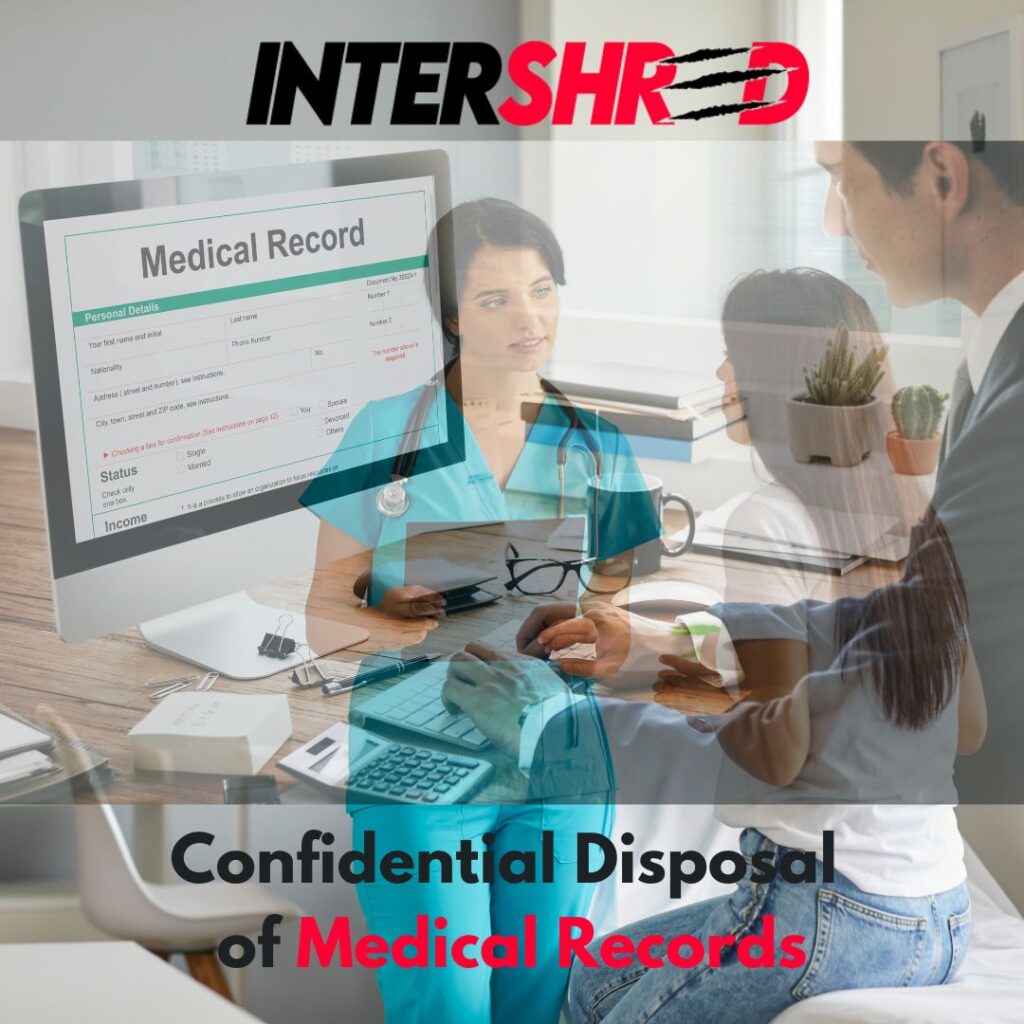Medical Document Shredding for Healthcare Providers
In the healthcare industry, safeguarding patient information is paramount. Medical professionals handle vast amounts of sensitive data daily, including records, test results, and personal information. Proper disposal of these documents is crucial to maintaining patient confidentiality and complying with legal requirements. This is where Medical Document Shredding comes into play.
Why Medical Document Shredding is essential
- Protecting Patient Privacy:
Medical Records contain highly sensitive information. Unauthorised access can lead to identity theft, financial fraud, and severe breaches of patient trust. Medical Document Shredding ensures that patient information is destroyed securely and irretrievably, safeguarding privacy.
2. Compliance with legal regulations.
Healthcare providers are bound by strict regulations, such as HIPPA in Australia, which mandate the secure handling and disposal of patient information. Non-compliance can result in a heavy fine and legal action.
Utilising professional medical shredding documents helps ensure compliance with these regulations, reducing the risk of legal percussions.
3. Prevent Data Breaches
Data breaches can have devastating consequences for healthcare providers, including financial loss, reputational damage, and loss of patient trust. Shredding Medical Documents reduces the risk of data breaches ensuring that obsolete or unneeded documents are destroyed, making it impossible for unauthorised parties to access sensitive information.
What Should be Shredded in Medical industry
Patient Medical records: Includes history, treatment notes, and medical images
Prescription Information: Details of medications prescribed to patients.
Billing and Insurance Information: Contains personal and financial data.
Test results and lab reports: Sensitive health information that should not be disclosed.
Appointment schedules: Includes patient names and visit details.
Patient Correspondence: Letters and emails between healthcare providers and patients.
Old ID and insurance Cards: Contain personal identification information
Personal Files: Employee records that may include personal data.
Financial Records: Documents related to the financial operations of the healthcare facility.
Outdated Policies and Procedures: Internal documents that are no longer in use.
Uniforms and Badges: Old uniforms and identification badges that could be misused if not properly disposed of.
X-rays and imaging films: Contain sensitive medical information that should be securely shredded.
Electronics: Hard drives, computers, and other electronic devices that store patient data. They should be securely wiped or shredded to prevent data retrieval.
Backup tapes and Cds: Media containing backups of sensitive data that need to be destroyed once they are no longer needed.
Prescription Bottles: Labels and containers with patient information that should be shredded or destroyed.
By ensuring the secure disposal of these items, healthcare providers can mitigate the risk of data breaches, protect patient confidentiality, and remain complaint with relevant regulations.

